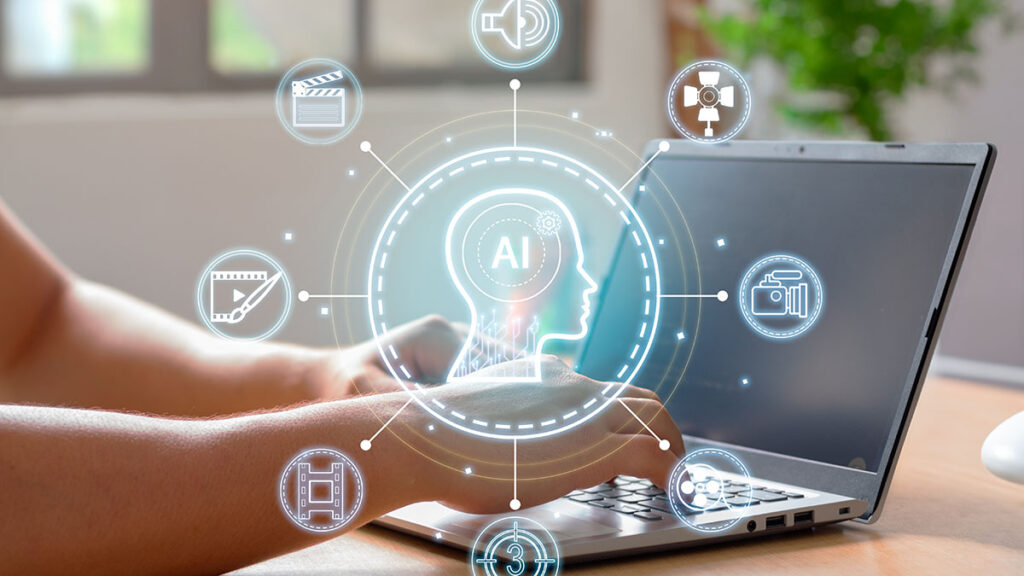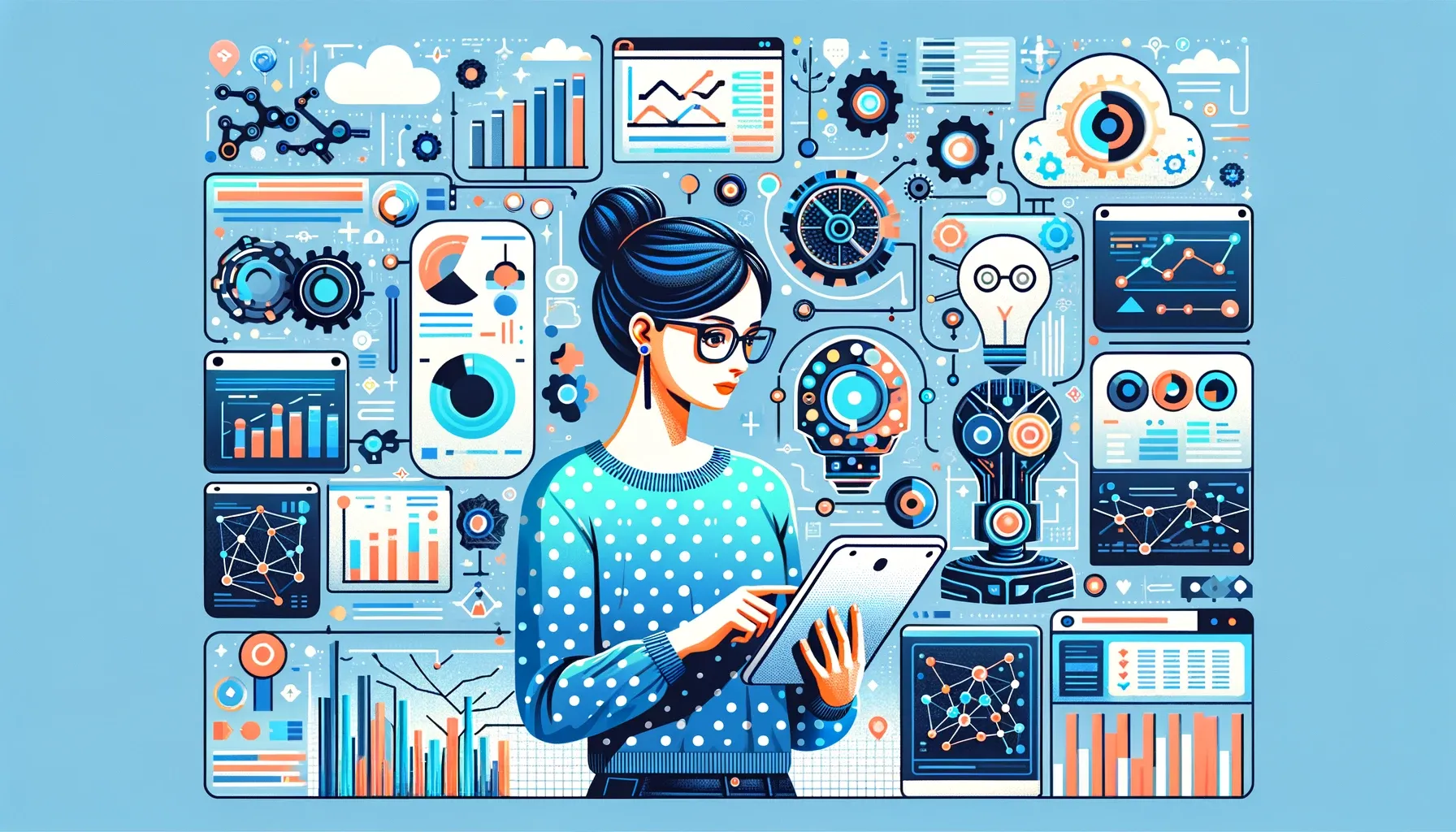The Future of B2B: Utilizing AI Automation to Drive Success
The landscape of B2B is changing as firms progressively transform to AI automation for critical benefit. This makeover guarantees to enhance effectiveness and customer involvement with advanced modern technologies. Nevertheless, the assimilation of these devices is not without its obstacles. Recognizing exactly how organizations can browse this developing surface will certainly be essential for future success. What elements will determine the effectiveness of AI in this industry? The responses might redefine standard organization models.
Comprehending AI Automation in B2B
As companies progressively seek efficiency, comprehending AI automation in B2B ends up being necessary. AI automation refers to using fabricated intelligence technologies to improve and improve service processes. In the B2B market, this entails the assimilation of AI tools to handle jobs such as information analysis, consumer interactions, and supply chain procedures. By leveraging artificial intelligence and natural language handling, companies can boost accuracy, minimize human mistake, and speed up decision-making (Minarik AI). Furthermore, AI automation promotes the handling of big volumes of data, making it possible for companies to remove useful insights and optimize their operations. As organizations navigate this technological landscape, a comprehensive grip of AI automation's abilities will empower them to stay receptive and affordable to market demands
Trick Advantages of AI Automation for Businesses
While numerous organizations face increasing operational demands, AI automation provides many advantages that can substantially improve their efficiency. One significant benefit is performance; AI systems can carry out repetitive jobs quicker and with better accuracy than people, therefore releasing and reducing mistakes up staff members for more strategic efforts. In addition, AI automation enables data-driven decision-making by analyzing huge datasets rapidly, supplying insights that educate company approaches. Price reduction is an additional essential advantage, as automation lessens labor costs and optimizes source appropriation. Additionally, AI can boost scalability, allowing services to adapt to market adjustments swiftly. Ultimately, the assimilation of AI automation promotes technology, enabling business to stay affordable in a rapidly progressing landscape.
Changing Customer Experiences With AI
AI is reshaping client experiences by improving and allowing personalized communications involvement. Through the application of predictive analytics, businesses can expect client requirements and preferences, resulting in more customized services. Furthermore, simplifying assistance procedures with AI innovation improves performance and contentment, ultimately changing the general consumer trip.
Customized Interactions and Involvement
Personalized interactions have actually come to be a foundation of efficient client engagement in the B2B landscape. By leveraging AI-driven services, companies can tailor their interaction and offerings to satisfy the special requirements of each customer. Automated systems evaluate customer data, choices, and actions, enabling organizations to create personalized experiences that reverberate with their target market. This degree of personalization not only enhances customer satisfaction however likewise fosters long-lasting commitment. In addition, AI tools assist in real-time communications, allowing companies to react immediately and efficiently to queries and responses. As an outcome, business can build stronger partnerships with clients, making certain that their solutions line up with developing assumptions. Inevitably, individualized engagement with AI causes improved outcomes and sustained success in the affordable B2B market.
Predictive Analytics Application
As businesses progressively seek to enhance customer experiences, implementing anticipating analytics has emerged as a pivotal method in the B2B industry. By leveraging data-driven insights, organizations can expect customer requirements and choices, allowing them to tailor their offerings more successfully. Predictive analytics uses historical information and innovative formulas to forecast future behaviors, enabling organizations to identify possible challenges and possibilities. This positive technique not just boosts customer complete satisfaction but likewise fosters commitment by supplying prompt and relevant remedies. Additionally, anticipating analytics aids in source allocation, ensuring that advertising and marketing efforts are concentrated on high-value prospects. Inevitably, the assimilation of predictive analytics gears up B2B companies with the tools needed to transform client interactions and drive long-lasting success in an increasingly affordable landscape.
Improving Support Procedures
Enhancing consumer experiences in the B2B field expands past anticipating analytics; improving support procedures plays an important duty. By incorporating AI-driven solutions, businesses can automate routine queries and improve feedback times, leading to heightened consumer satisfaction. Chatbots and online aides provide 24/7 support, dealing with customer requires quickly and reducing the burden on human representatives. This automation allows teams to concentrate on intricate issues, promoting more purposeful interactions. AI tools can assess assistance information to identify patterns and areas for enhancement, ensuring constant enhancement of solution top quality. As companies adopt these innovations, they place themselves as responsive and customer-centric, eventually driving commitment and organization growth in an increasingly affordable landscape.
Enhancing Workflow and Processes
Improving procedures and procedures in B2B environments is crucial for improving total effectiveness. By maximizing workflow performance and automating regular jobs, companies can decrease hands-on mistakes and maximize beneficial sources. This shift not just improves efficiency but also enables groups to focus on critical initiatives that drive development.
Maximizing Workflow Efficiency
Optimizing process efficiency is crucial for services seeking to lower functional prices and enhance efficiency. By evaluating existing procedures, companies can determine traffic jams and redundancies that hinder performance. Executing streamlined procedures improves interaction and collaboration among groups, making sure that jobs are finished more promptly. Making use of data-driven understandings allows companies to make enlightened choices that refine procedures additionally. Additionally, adopting integrated modern technologies can promote smooth information flow, decreasing the danger of delays and mistakes. As companies welcome these adjustments, they not just cultivate a more active work environment however also position themselves to react swiftly to market needs - Growth Systems For B2B. Eventually, concentrating on workflow efficiency enables organizations to assign resources efficiently, driving lasting success in a significantly competitive landscape
Automating Regular Jobs
Several companies are progressively turning to automation to take care of regular tasks, recognizing its possible to greatly boost functional efficiency. By releasing AI-driven remedies, firms can improve recurring tasks such as data entry, billing processing, and client questions. This change not just decreases human mistake however also liberates important worker time, permitting staff to concentrate on calculated efforts and value-added tasks. Furthermore, automation can improve reaction times and solution consistency, leading to enhanced client complete satisfaction. As organizations navigate a competitive landscape, leveraging automation for routine jobs ends up being necessary for keeping and optimizing process dexterity. Inevitably, this technique promotes innovation and drives growth, positioning organizations for lasting success in the advancing B2B setting.
Enhancing Decision-Making Via Data Insights

Getting Rid Of Difficulties in AI Execution
Although AI application holds the pledge of substantial functional renovations, companies commonly deal with a myriad of obstacles that can prevent development. Key barriers include data quality concerns, as lots of business deal with insufficient or inconsistent datasets required for reliable AI training. Additionally, resistance to change within the labor force can impede the fostering of AI innovations, as staff members might be afraid work displacement or lack the necessary abilities. Budget plan restraints likewise present a challenge, restricting investment in the needed facilities and ability. Integrating AI systems with existing procedures can be complex, demanding considerable time and sources. Getting over these challenges demands a strategic method that includes comprehensive training, adjustment administration, and a dedication to continual improvement in AI campaigns.
Future Fads: The Following Frontier in B2B Automation
While the landscape of B2B automation remains to advance, emerging patterns are poised to redefine exactly how organizations operate. The combination of advanced expert system will facilitate extra individualized client experiences, allowing services to tailor solutions precisely to client needs. The surge of predictive analytics will allow organizations to prepare for market changes and enhance decision-making processes. Automation of regular tasks through robot process automation (RPA) will certainly enhance effectiveness, minimizing operational costs considerably. Furthermore, the fostering of blockchain technology guarantees improved transparency and safety in purchases. As these developments gain grip, business will increasingly leverage AI-driven insights to promote collaboration, improve supply chains, and improve overall productivity, noting a transformative shift in the B2B landscape.
Often Asked Concerns
What Kinds Of Companies Can Benefit Most From AI Automation?
Production, logistics, and customer support organizations can benefit most from AI automation. These fields boost operational try this website efficiency, minimize costs, and enhance customer communications, ultimately bring about enhanced performance and success in an open market.
How Can Local Business Carry Out AI Automation Effectively?
Small companies can execute AI automation successfully by recognizing repetitive jobs, picking user-friendly devices, ensuring sufficient training for staff members, and slowly integrating remedies to optimize operations while keeping an eye on performance and changing strategies based upon responses.
What Prevail False Impressions About AI in B2B?
Usual mistaken beliefs regarding AI in B2B include the idea that it is just for huge enterprises, that it assures instantaneous outcomes, which it can completely replace human decision-making instead than enhancing it. Growth Systems For B2B.
How Does AI Automation Effect Employee Duties and Work Safety?
AI automation reshapes employee roles by improving repeated tasks, cultivating efficiency and innovation. While some fear task loss, it frequently produces chances for upskilling and new positions, ultimately enhancing job security through included worth and efficiency.
What Abilities Are Needed to Handle AI Automation Projects?

As services significantly seek performance, understanding AI automation in B2B ends up being necessary. AI automation promotes the handling of large volumes of information, allowing companies to extract beneficial insights and enhance their operations. While several companies grapple with raising functional needs, AI automation provides countless advantages that can significantly boost their performance. Automation of regular tasks via robotic procedure automation (RPA) will certainly enhance efficiency, lowering functional expenses significantly. Manufacturing, logistics, and customer service organizations can benefit most from AI automation.